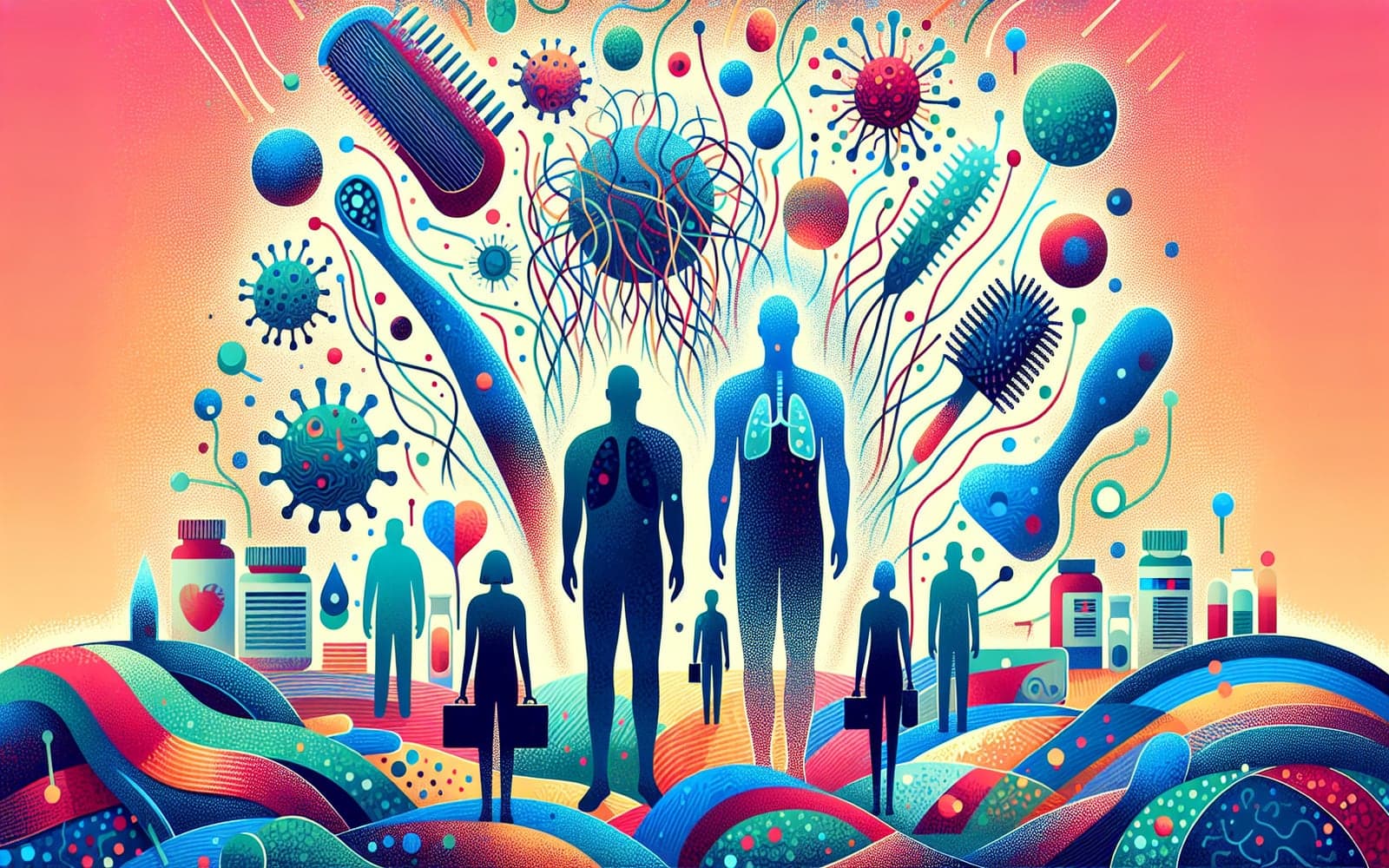What Puts You at Risk for Alopecia Areata?
Published: May 22, 2024

Medically reviewed by Alan Lucks | MD, Alan Lucks MDPC Private Practice - New York on May 22nd, 2024.
Alopecia areata can appear out of the blue, but certain factors might increase your risk. Let's explore what these are.
Contents
Genetic Predisposition
Family history plays a significant role in the development of alopecia areata. Studies reveal that about 20% of people with alopecia have a first-degree relative with the condition. Twin studies also show a higher concordance rate in identical twins compared to fraternal twins.
Environmental Triggers
Infections, stress, and even certain vaccinations are thought to trigger episodes of alopecia areata. While many patients report severe emotional stress before episodes, others have no such history. Childhood trauma has also been suggested as a factor in adult cases.

Associated Autoimmune Conditions
Alopecia areata is often linked with other autoimmune disorders like thyroid disease and vitiligo. The presence of these conditions might indicate a higher risk for developing alopecia areata. Autoimmune thyroid disease is particularly noted for its association.
Frequently Asked Questions
Yes, genetics play a role in its development.
Stress is a known trigger but not the sole cause.
It's linked with thyroid disease and vitiligo, among others.
Yes, infections may trigger episodes.
Key Takeaways
Understanding your risk factors can help in early detection and management of alopecia areata.
Want to know more about your risk? Talk to Doctronic today!Related Articles
References
Petukhova L, et al. Genome-wide association study in alopecia areata. Nature 2010; 466:113.
Willemsen R, et al. Increased history of childhood trauma in alopecia areata. J Am Acad Dermatol 2009; 60:388.
This article has been reviewed for accuracy by one of the licensed medical doctors working for Doctronic. Always discuss health information with your healthcare provider.

